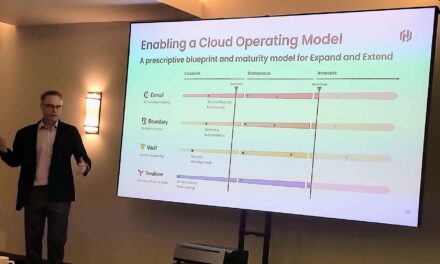The AI factor
According to Tenable’s Cloud AI Risk Report 2025, 70% of cloud AI workloads contain unremediated vulnerabilities, with many also exposed to dangerous misconfigurations and overly permissive access. In these scenarios, even backups risk being compromised or rendered unusable if organizations fail to manage their cloud and AI exposures effectively.
Remus Lim, Senior Vice President, Asia Pacific & Japan, Cloudera, commented: “With data increasingly flowing across complex AI ecosystems, IT leaders need to understand that managing and securing data requires a holistic data protection approach, whether through a modern data lakehouse architecture or a multi-cloud data management strategy.”
He pointed out that, as AI continues to integrate deeper into business processes, traditional methods of data governance are no longer sufficient. “Businesses should strive for continuous visibility, control, and resilience – or risk losing their grip as AI-driven environments become increasingly complex.”
As AI adoption grows, more teams across the organization begin relying on AI-driven insights, causing data to move across multiple systems in ways that are difficult to track and control. Without clear oversight, sensitive information, such as customers’ personal data or an organization’s proprietary information, embedded in AI models or reports, can be unknowingly exposed, misused, or shared with unauthorized users.
“Without the right safeguards, businesses aren’t just risking security breaches – they are exposing themselves to regulatory penalties, operational disruptions, and a loss of customer trust,” Lim said.
His approach to securing AI data effectively: “Businesses need to shift from reactive security to proactive governance. Instead of scrambling to fix issues after a breach, they must embed security measures into AI workflows from day one.”
Finance, healthcare and utilities
This, Lim added, is crucial for industries such as finance and healthcare, where large volumes of sensitive data are stored. “As AI adoption continues to grow, businesses have two choices: rely on outdated security approaches and react to threats as they arise or take control by implementing strong AI data governance from the start. The future of AI security isn’t about waiting for problems to emerge – it’s about preventing them before they happen.”
Geoff Childs, General Manager, Asia, Gentrack, zoomed in on the utility sector: “The modern utility sector is seeing an explosion of data. From smart metering to behind-the-meter technologies, data is being generated as frequently as every five minutes. With this surge, companies need solutions designed to handle the growing complexity and volume of smart meter data, enabling real-time management at scale.”
He believes that analyzing data, identifying trends, and making informed decisions on energy consumption and grid management are only possible if this data is securely managed to ensure operational resilience and support flexible energy models.

















